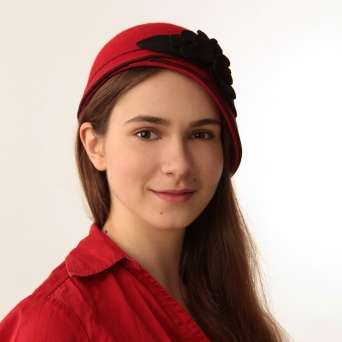What do Jesus, Marilyn Monroe, Buddha, Batman and a child’s drawing of a monster have in common? If there’s any reasonable answer to that question other than, “They’re all in the final scene of Die Frau ohne Schatten at the Bayerische Staatsoper”, I can’t find it. Director Krzysztof Warlikowski’s production is full of such confusing juxtapositions and tends towards the fantastical and surreal. I can’t pretend to have understood all (or even most) of it, but it hardly matters. What made this show great was its outstanding singing, conducting, and playing.
Die Frau ohne Schatten (FroSch) begins when the Empress learns that she has only three days in which to acquire a shadow (and with it, the ability to bear children). Otherwise, she will return to the realm of her father (Keikobad) and her husband, the Emperor, will be turned to stone. She and her nurse go among humans and encounter a dyer named Barak and his wife. The wife agrees to sell her shadow. But when Barak’s wife announces that she has renounced her unborn children and sold her shadow, Barak threatens to kill her, and the Empress says she cannot take a shadow stained with blood. They are all swept to Keikobad’s realm, where the Empress is shown her near-dead husband and encouraged to drink magical water that will give her Barak’s wife’s shadow (and thereby save her husband). She refuses, and her self-sacrifice is rewarded: both women return to the world with their husbands and with shadows.
This performance was baritone Wolfgang Koch’s evening. After impressing the audience with his rich voice and impassioned acting as Barak, he was called forward during curtain call to receive the distinction of being named a Bavarian Kammersänger. The award recognized his lifetime of accomplished singing, but if you’d asked me to give one prize based solely on this FroSch, I couldn’t possibly have chosen between so many talented singers! As Barak’s wife, Elena Pankratova could unleash an overwhelming wall of sound to berate her husband – or ringing, sweet tones to beg him to kill her. Ricarda Merbeth’s Empress was commanding and resonant in both song and speech, even when she was tossing and turning or dragging herself across the floor. As her husband, Robert Dean Smith showed off a strong tenor, especially during his anguished act two soliloquy. Deborah Polaski, the Nurse, would surely take the acting honors among the cast. She made her wide-ranging part look easy: she never seemed to be thinking about vocal production, instead devoting her energy to relishing her character’s disdainful sneers and mischief-making.
Stellar though the cast was, the biggest achievement of the evening came from Maestro Kirill Petrenko. I don’t think I’ve ever heard a more perfectly conducted and played opera. The Bayerische Staatsorchester ranged from whisper-soft to blaringly loud and from sweet to harsh, sometimes changing volume and texture instantaneously. The wind section sounded especially lovely. All motifs were clear, all timings precise. FroSch’s extravagant instrumentation, including a glass harmonica, wind and thunder machines, Chinese gongs, and Wagner tubas, makes for a rich and unusual sound. The Staatsorchester did Strauss’ score justice, apparently enjoying the novel challenges it poses.
The staging can’t be explained, only experienced. The opera is prefaced with a scene from Last Year at Marienbad, a famously opaque and dreamlike movie that hints at this production’s strangeness. Yet for all the surreality here, there’s no magic. Barak’s wife’s lover is a prostitute whom the Nurse pays in cash; Keikobad appears as an old man; the water the empress must choose whether to drink is presented in a glass on a tray; and the Emperor’s conversion to stone is a medical procedure. That’s not to say that the production isn’t thoroughly fantastical. Children with falcon’s heads wander around the stage, offering props to characters at opportune moments. As the principal characters get swept into Keikobad’s realm, a wave washes over them, and the next act opens with projections of swimming fish and sinking corpses. A small girl in red occasionally wanders onstage, and her projected likeness gets bored while watching Act III. When the nurse is punished in the end, she is given an injection and forced into a straight-jacket. (The text says she’s condemned to live among humans, so I’m still pondering the equation of sanity with godliness and madness with humanity.)
People who have attended this FroSch several times already assure me that the production is slightly less puzzling after multiple viewings. But my advice to opera-goers would be this: don’t even look for sense. Accept the dreamy surreality of the visions presented to you and revel in Strauss’ music, played and sung to perfection.




